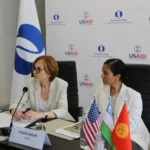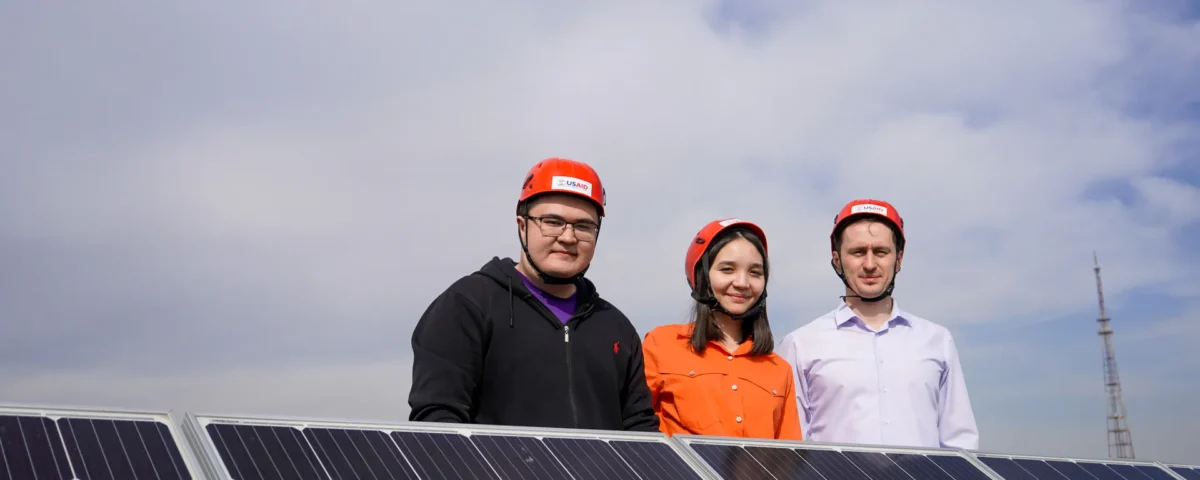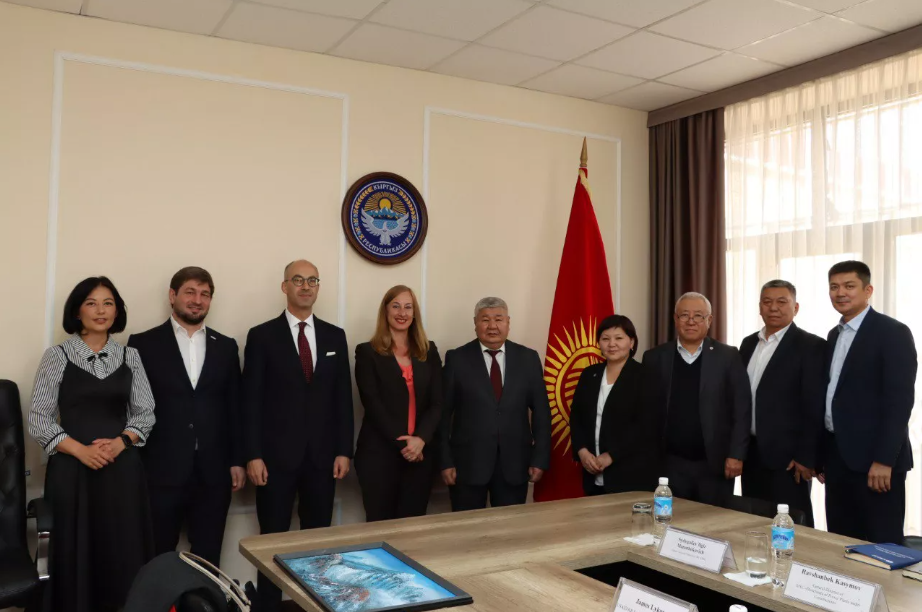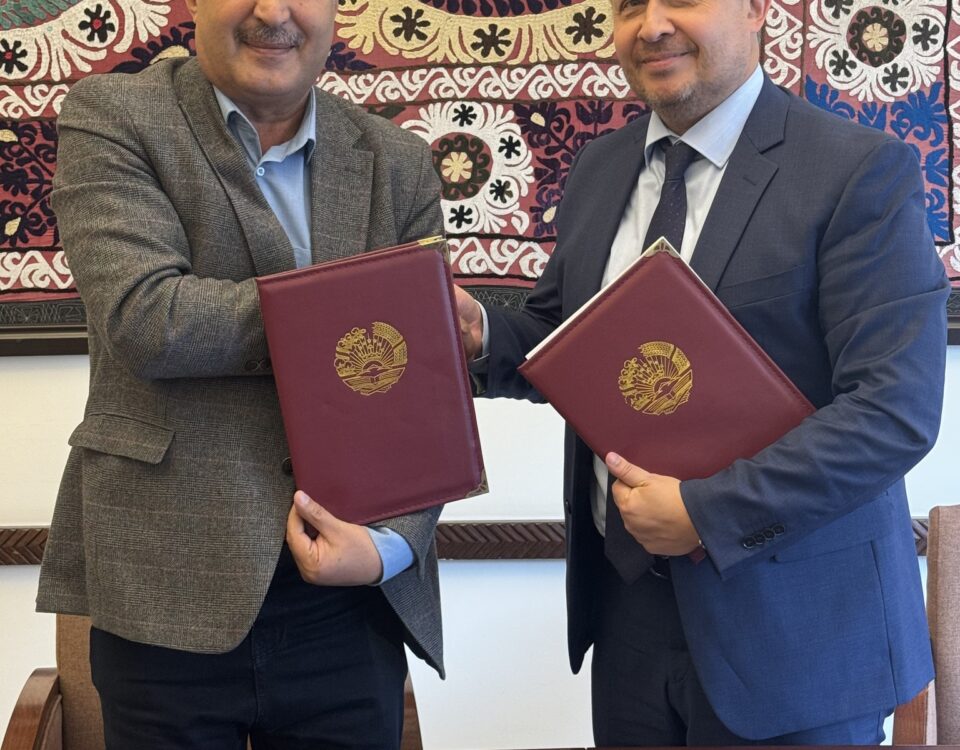
Press release – USAID, EBRD Sign MOU On Central Asia Partnership For A Low Carbon Future

Roadmap approved to study the issue of accession of Turkmenistan to the Global Methane Commitments
New generation of Kazakh power engineers pave the way for a sustainable energy transition
Anur Bektimirov, 29, is an ambitious power engineer from Kazakhstan, born and raised in Kentau (literally translated as “Ore mountain” from Kazakh) – an industrial town surrounded by mining workings and quarries.
In 2011, Anur moved to Almaty to pursue an engineering degree from the Almaty University of Power Engineering and Telecommunications (AUPET) – the country’s largest and leading technical university, and a key USAID partner in promoting the development of low-cost renewable energy in Central Asia.
Over the years, USAID developed a first-in-the-region curriculum on renewables for AUPET’s students and delivered and installed new equipment for practical demonstration and study purposes.
“I first started working at the university in 2014, during my third year of study. As a technician, I got a glimpse of the various research carried out by our local specialists and got inspired to take this path myself” – says Anur.
After receiving his diploma in 2015, he began teaching and sharing his expertise in overcoming challenges in power systems, resolving issues in operating power grids, and supporting the energy transition with students.
As a research supervisor, he is also guiding them in their thesis development and consulting them on international best practices based on his own experience.
In 2019, Anur joined AUPET’s scientific and technical center, “Smart Power Grid,” to continue his research as he pursued a Ph.D. In the last five years, he has completed 10 projects for various electric power companies and fully managed two of them. He also leads a team of aspiring young researchers, like Aigerim Aman and Yerlan Kenessov.
Aigerim recently obtained a master’s degree from a German university and defended her thesis on the integration of renewables. “It is nice to see that young professionals can find a place to do meaningful work here,” says Anur.
That work includes management of electrical networks, to improve network stability and efficiency and to mitigate emergencies and their negative impact throughout the region.
This work is undertaken by USAID through its Power Central Asia (PCA) activity which aims to help Central Asian countries meet their national and regional priorities in energy security and unlock the economic benefits of regional electricity trade.
Recently, Anur and his team evaluated the effectiveness of a pilot smart metering system at a Almaty company and reviewed the prospects of further developing smart metering in Kazakhstan. Currently, they are analyzing the possible volume and potential impact of integrating renewable energy for a distribution company in the Mangystau region of Kazakhstan.
For Anur, switching the research focus to renewables happened gradually from his knowledge of emergency automation. “Having gained experience in various projects around sustainability, I became interested in the challenge of maintaining the reliability of power supply while integrating large amounts of renewable energy into the power system” says Anur. Since then, he has immersed himself in the specifics of generating electricity from wind and solar, furthering his expertise in sustainable energy.
As Anur continues his research and teaches the next generation of power engineers, his work will continue to pave the way for a more sustainable future in the region.
Похожие
On November 20, 2024, Sara Werth, the new USAID Mission Director to the Kyrgyz Republic, met with Taalaibek Ibraev, the Minister of Energy of the Kyrgyz Republic
Подробнее - On November 20, 2024, Sara Werth, the new USAID Mission Director to the Kyrgyz Republic, met with Taalaibek Ibraev, the Minister of Energy of the Kyrgyz Republic




